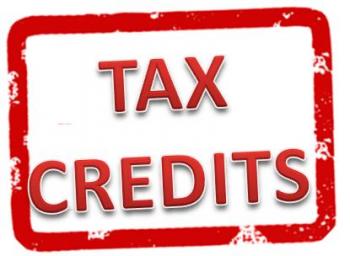A Short Guide to Tax Credits
 What are Tax Credits?
What are Tax Credits?
Tax Credits, which are commonly-referred to as tax deductions, are individual amounts of tax relief that can be obtained by taxpayers with regard to the amount of tax withholding experienced in tandem with earnings and income. Globally, a vast array of Tax Credits exists, which can result from the number of children, expenses incurred as a result of employment, and the creation of potential economic growth.
How to Obtain Tax Credits
Depending on the individual jurisdiction, which can range from country or municipality, Tax Credits can be obtained as a result of a variety of factors. The following Tax Credits are common on both a global level, as well as on a domestic level:
Child Tax Credits: Child Tax Credits are offered in certain jurisdictions, which result from a calculation with regard to the amount of children in a family in accordance to that household’s earned income. Although the standard by which individuals with children may qualify for these types of Tax Credits varies, each jurisdiction typically institutes a calculation protocol that regulates the rate of prospective Tax Credits in conjunction with the size of a respective family.
Carbon Tax Credits
Due to the current focus of the stasis of global ecology, many governments – both on international and domestic levels – have instated Tax Credits as a result of the facilitation of renewable energy sources in residential settings, as well as commercial settings. The implementation of Carbon Tax Credits was considered to be an attempt to foster the engagement of citizens with regard to alternative energy sources, which are also considered to be renewable and sustainable; Green Tax Credits can include the facilitation of renewable energy sources such as wind turbines, solar panels, hydroelectric power, geothermal power, and the elimination of fossil fuel usage:
• With regard to commercial establishments, the United States Federal Government may offer Green Tax Credits ranging from $0.30 to $1.80 with regard to square footage in which renewable, reusable technology is being facilitated
• With regard to residential operation of renewable energy sources, Tax Credits afforded by the Federal Government range in value; in certain cases – depending on the nature of the renewable energy system – individuals have obtained full refunds as a result of the operation and maintenance of Green energy systems
• Tax Credits in the forms of Mortgage and property tax relief may be obtained in the event that an individual chooses to utilize renewable energy systems within the operation of their respective household
• Commercial operations responsible for the manufacturing of energy-efficient products may be eligible to receive Tax Credits depending on the degree of efficiency and the nature of the appliance(s); typically, these Tax Credits are awarded per qualifying unit produced
Work Opportunity Tax Credits (WOTC)
This program instituted by the United States Federal Government allows Tax Credits to qualifying commercial endeavors and operations responsible for the provision, substantiation, and maintenance of the employment of groups of individuals undergoing large-scale unemployment. These individuals may include Veterans of Foreign Wars, the elderly, and minors; programs such as these not only allow for the proliferation of employment, but also the administration of work experience, as well.
Related Topics
- What You Should Know About Australian Customs
- The Biggest Tax Crimes To Avoid
- Filing For Income Tax
- Tax Refund Calculator
- 1098-T
- An Overview to Income Taxes
- The Facts on Tax Law
- EFTPS
- Value Added Tax or VAT Overview
- IRS Extension